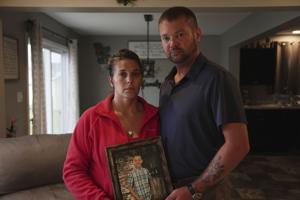Health
Surge of Anti-Vaccine Bills Threatens Public Health Protections

More than 420 bills targeting established public health protections, including vaccinations and food safety measures, have been introduced in state legislatures across the United States this year. This surge is part of a coordinated campaign led by allies of Robert F. Kennedy Jr., who has gained significant political influence as the Secretary of Health and Human Services. The implications of these bills raise concerns about the future of health safeguards that have historically protected children and vulnerable populations.
Vaccines have been heralded as one of the most significant public health achievements, drastically reducing rates of preventable diseases. According to a 2024 report from the World Health Organization (WHO), immunization campaigns have saved an estimated 101 million infant lives over the last five decades, contributing to a 40% decrease in child mortality rates worldwide. Despite this progress, misinformation surrounding vaccine safety has led to rising hesitancy and declining immunization rates.
The evolution of vaccine technology dates back to the mid-20th century, with significant milestones such as the polio vaccine introduced in 1955 and the combined MMR vaccine for measles, mumps, and rubella approved in 1971. Public health initiatives, including the Vaccination Assistance Act signed by President John F. Kennedy in 1962, played crucial roles in increasing vaccine accessibility.
Yet, the recent political landscape has shifted. Following his confirmation as Secretary of Health and Human Services in November 2024, Kennedy has publicly voiced skepticism about vaccines, perpetuating debunked theories linking immunizations to autism. His controversial stance has reinvigorated a long-standing debate about vaccine safety and effectiveness, particularly amid rising outbreaks of vaccine-preventable diseases.
In 2025, a measles outbreak in West Texas exemplified the consequences of declining vaccination coverage. As of early April 2025, infection rates had reached the highest levels since 2019, leading to the deaths of two children. The Centers for Disease Control and Prevention (CDC) noted that children living below the federal poverty level experienced significantly lower immunization rates, with only 56% completing the combined 7-vaccine series by age two.
Current CDC guidelines recommend that children receive vaccinations against 15 major illnesses by 24 months of age. While public schools generally mandate these vaccinations for attendance, the rise in nonmedical exemptions has become a pressing issue. In the 2023-2024 school year, approximately 4% of kindergarteners sought exemptions based on personal beliefs, more than double the rate of a decade earlier.
This increase in exemptions is primarily attributed to vaccine misinformation amplified during the COVID-19 pandemic. A 2024 study led by researchers at Columbia University highlighted how negative messaging and distrust in public institutions have fueled vaccine hesitancy. The implications for public health are significant; to achieve herd immunity against highly contagious diseases like measles, around 95% of a community must be vaccinated.
Kennedy’s administration has raised alarms in the medical community regarding his proposals to reform the health care system, including potential cuts to CDC funding that supports vital vaccination programs. Although Kennedy has stated he does not intend to eliminate vaccines, his advocacy for increased parental choice and further studies could jeopardize the progress made over the past several decades.
As vaccination rates decline, particularly among marginalized communities, the need for intervention becomes more pressing. The Vaccines for Children program, established in 1994 to provide free vaccinations to uninsured or underinsured children, remains a crucial resource. Despite its significance, the completion rates for eligible children lag behind those of the general population.
The resurgence of vaccine-preventable diseases underscores the critical need for continued public health education and access to vaccinations. As misinformation spreads and political agendas shift, the most vulnerable populations—particularly children living in poverty—face the greatest risks. Addressing these disparities is essential to safeguarding the health of future generations and ensuring that the hard-won gains in public health are not lost.
Efforts to reinforce vaccine education and accessibility will be vital in combating the tide of misinformation and protecting public health, especially as new legislative challenges emerge.
-

 Lifestyle3 months ago
Lifestyle3 months agoLibraries Challenge Rising E-Book Costs Amid Growing Demand
-

 Sports3 months ago
Sports3 months agoTyreek Hill Responds to Tua Tagovailoa’s Comments on Team Dynamics
-

 Sports3 months ago
Sports3 months agoLiverpool Secures Agreement to Sign Young Striker Will Wright
-

 Lifestyle3 months ago
Lifestyle3 months agoSave Your Split Tomatoes: Expert Tips for Gardeners
-

 Lifestyle3 months ago
Lifestyle3 months agoPrincess Beatrice’s Daughter Athena Joins Siblings at London Parade
-

 World3 months ago
World3 months agoWinter Storms Lash New South Wales with Snow, Flood Risks
-

 Science3 months ago
Science3 months agoTrump Administration Moves to Repeal Key Climate Regulation
-

 Business3 months ago
Business3 months agoSoFi Technologies Shares Slip 2% Following Insider Stock Sale
-

 Science2 months ago
Science2 months agoSan Francisco Hosts Unique Contest to Identify “Performative Males”
-

 Science3 months ago
Science3 months agoNew Tool Reveals Link Between Horse Coat Condition and Parasites
-

 Sports3 months ago
Sports3 months agoElon Musk Sculpture Travels From Utah to Yosemite National Park
-

 Science3 months ago
Science3 months agoNew Study Confirms Humans Transported Stonehenge Bluestones









